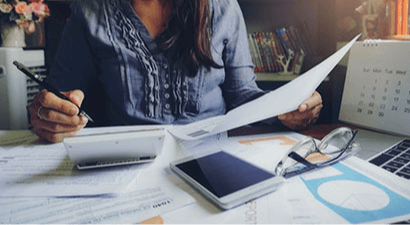What to Expect from February's Budget Speech
South African citizens and investors are feeling slightly more optimistic now that Cyril Ramaphosa is the President of the ANC, and this was reflected in the way Ramaphosa was recently received in Davos. That being said, however, February’s budget speech is still going to be a tense affair.
South Africa’s debt levels and budget deficit have been growing at an alarming rate. 2017’s Medium Term Budget Policy Statement showed that the consolidated debt to GDP ratio had increased to 4.3% , and the projected tax shortfall for 2017 was estimated at R50.8 billion.
Many are predicting a budget speech announcement of an increase in the VAT rate (VAT rate has remained unchanged since its increase to 14% in 1993) as an attempt to balance the books. Then option of a multiple VAT rate system has been thrown around, but let’s not forget that the Davis Tax Committee dismissed multiple VAT rates due to their complexity.
Also expected to be announced, both an increase in Capital Gains Tax and personal income tax rates for upper income earners. It is important to note, though, that even the new super tax bracket of 45% on taxable income above R1.5 million, imposed from 1 March 2017, is only expected to collect an additional R4 billion for the fiscus. Add to that President Zuma’s promise of free higher education, and an additional R40 to R60 billion per year needs to be found just for that. The question is, from where?
Increases to the General Fuel and Road Accident Fund levies, both of which are included in the price of petrol and diesel, are expected. Currently the general fuel levy is R3.15 and the Road Accident Fund levy R1.63. Together these levies make up approximately 33% of the total cost of a litre of fuel. Minister Gigaba might also announce the date of implementation of the carbon tax (a second draft Carbon Tax Bill went out for public comment in December 2017).
It is estimated that 13% of the South African population of 56 million people pay income taxes. The government cannot keep looking to this small group to make up the defecit, but with meagre economic growth, there is no immediate prospect of increasing the tax base. Also, emigration experts have reported increases in the number of South Africans inquiring about immigrating. This is worrying, because those who immigrate are, nine times out of ten, part of the tax base. The government has ramped up the introduction of new tax initiatives; any way to make up the deficit! The proposed VAT increase is an example of this, however, the people that will be affected the most by an increase in the VAT rate are the poor. The budget speech needs to convince more than just South African citizens, however, lest we forget that South Africa has an upcoming credit ratings decision by Moody’s due to be announced in March 2018.





